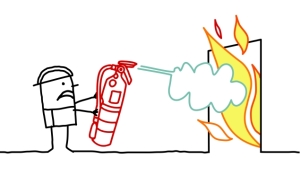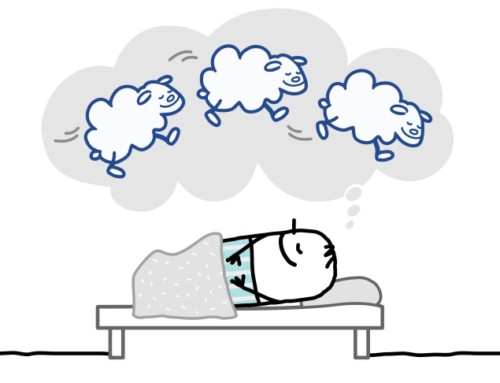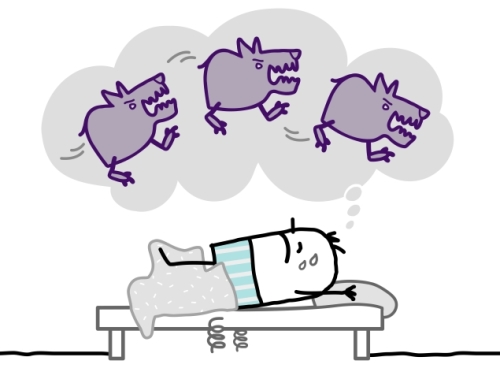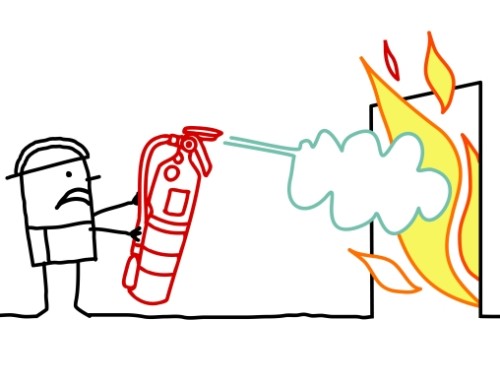In this article, I discuss how to address the issue of having a strong emotional reaction to stimuli which remind you of a traumatic event.
One of the most disturbing symptoms of post-traumatic stress disorder (PTSD) is persistent re-experiencing of the traumatic event. This can take the form of flashbacks–memories, images, intrusive thoughts and nightmares associated with the event. In this article, I will focus on one additional type of persistent re-experiencing which is particularly unsettling–having a strong emotional reaction when you encounter people, places or other stimuli reminding you of the event. In the following sections, I will discuss the reasons for the strong emotional reaction to ‘triggers’ and what steps can be taken in and out of therapy to address this issue.
How avoidance drives re-experiencing of the traumatic event
Re-experiencing of a traumatic event is caused by another key symptom of PTSD—avoidance. This includes avoiding thinking about the event, avoiding talking about the event and avoiding encountering any people, places or other stimuli reminding you of the event.
It is not surprising and very reasonable that a person would want to avoid the strong emotional reactions stemming from thinking about or talking about a traumatic event or from encountering stimuli reminding oneself of the event. Unfortunately, avoidance is ultimately an unsuccessful strategy. In fact, it has just the opposite effect of making the negative memories, thoughts and images come into one’s mind even more often and with greater intensity.
The reason has to do with thought suppression. A famous experiment on this topic asked participants not to think of a white bear for five minutes. The result was that participants trying not to think of the white bear thought of little else besides the white bear. In a similar manner, suppressing memories, thoughts and images associated with a traumatic event causes them to enter one’s mind with greater frequency. The additional frustration of experiencing the futility of trying not to think of the event compounds the emotional distress.
So if avoidance through thought suppression is largely responsible for persistent re-experiencing in PTSD, then overcoming avoidance by not engaging in thought suppression provides the key to addressing persistent re-experiencing. In the next section, I will discuss ways to achieve this goal as it applies to being triggered by stimuli reminding you of the traumatic event.

How to overcome avoidance to manage your emotional reaction to triggers
There are several ways to overcome avoidance of stimuli associated with a traumatic event as a means of addressing the emotional discomfort triggered by exposure to these stimuli. These include:
1. Be a detective by noticing factors which predict the triggering of your emotional reactions. These reactions will be much easier for you to experience if you are anticipating them. In turn, this will make it much easier for you to choose to expose yourself to triggering stimuli rather than avoiding them. The benefits of such exposure relate to the next strategy for overcoming avoidance;
2. Tell yourself that your emotional reactions to stimuli which remind you of the traumatic event are a normal part of healing and recovery and not a sign of permanent damage. That is, your reaction is a conditioned emotional response to stimuli associated with the traumatic event. Although the strength of the reaction may be unsettling in the early stages of your exposure to such stimuli, over time the strength will decrease through the classical conditioning process of extinction as the link between the stimulus and the traumatic event is gradually broken.
3. Notice differences between present-day triggering stimuli and those which were present at the time of the traumatic event. A primary reason that encountering stimuli reminding you of a traumatic event is so distressing is that it feels like you are reliving the traumatic event. Noticing differences between stimuli you encounter in the present and those which were present when you experienced the traumatic event will provide emotional relief as you realize you are not reliving the event. The more you note these differences, the more you can tell yourself, “That was then, this is now” when you encounter triggers.
4. Talk about the traumatic event in therapy. The more you overcome avoidance of memories, thoughts and images associated with the traumatic event by talking about it with a caring and skilled therapist, the less likely you will be taken aback by encountering stimuli outside of therapy which trigger a strong emotional response. Gradually exposing yourself to the trauma material in a safe setting admittedly is hard work but will ultimately pay dividends in addressing each of the symptoms of PTSD including the various forms of persistent re-experiencing discussed in this article.
A psychologist specializing in cognitive behavioural therapy (CBT) can help you to implement the ideas from this article if you are suffering from the effects of a traumatic event. As a Calgary psychologist and a Cochrane psychologist, I help my clients in trauma counselling use these ideas to their benefit.
May your emotional reaction to reminders of difficult events subside over time,
Dr. Pat





Thanks, Dr. Pat! :)